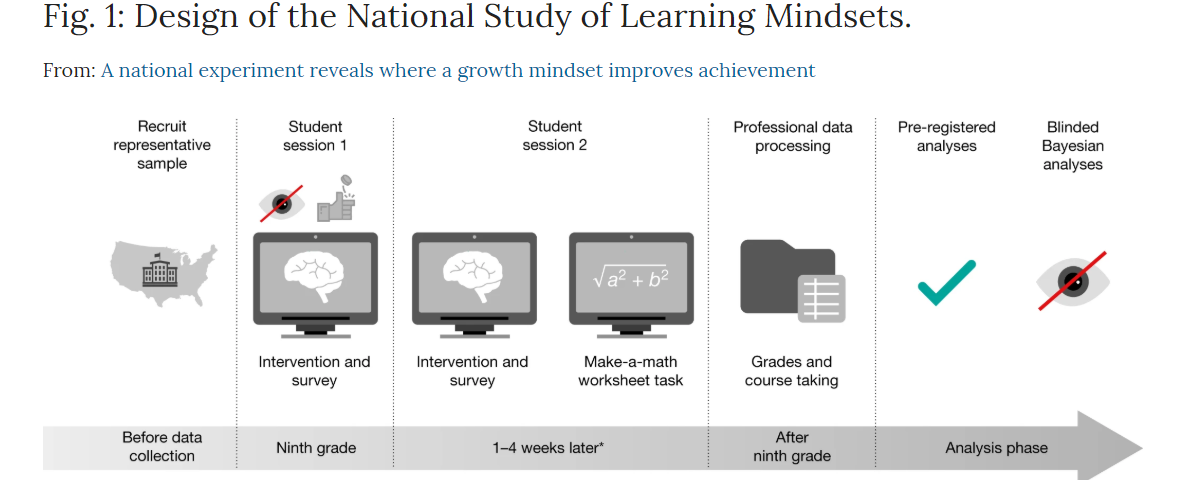Via de nieuwsbrief “Best Evidence in Brief” ontdekte ik een recente studie (Yeager et al., 2019) die aantoont dat een korte online mindset interventie (2 keer een sessie van 25 minuten) bij Amerikaanse leerlingen (9th grade) een positief effect had op de scores van leerlingen die minder goed presteerden (effect size = +0.11). Eerder onderzoek over mindset interventies wees al uit dat de impact vaak minimaal tot verwaarloosbaar is en soms sterk afhankelijk is van de doelgroep (Yeager et al, 2018; Sisk et al, 2018).
Bron: Nieuwsbrief Best Evidence in Brief (20/08/2019)
Results of a large randomized controlled trial of growth mindset
In a recent issue of Best Evidence in Brief, we reported on an English study of a growth mindset intervention which found no evidence that it led to additional progress in literacy or numeracy. Now a randomized controlled trial published in the journal Nature has found that a short, online, self-administered growth mindset intervention may improve achievement among lower-achieving students and increase overall enrollment in advanced math courses.
The study, conducted by David S. Yeager and colleagues, was the largest ever randomized controlled trial of growth mindset in U.S. schools, with 12,000 ninth graders in 65 schools involved.
Students were individually randomized to either a control or intervention group. The intervention group was asked to complete two 25-minute online courses, taken three weeks apart. Students were given information about how the brain works and the latest research on growth mindset, then they completed activities such as explaining what they had learned from the course to students in the year below. Students in the control group were given a similar program with information on how the brain worked, but no information on growth mindset.
Following the intervention, students’ grade point average (GPA) in their core classes of math, science, English, and social studies, were collected.
The study found that:
- GPA scores for lower-achieving students in the intervention group rose by 0.1 point relative to peers in the control group (effect size = +0.11).
- The proportion of lower-achieving students with D or F averages dropped by 5%.
- Both higher- and lower-achieving students were more likely to take an advanced math class in 10th grade – meaning enrollment in these courses rose from 33% to 36% in the 41 schools that shared this data.

